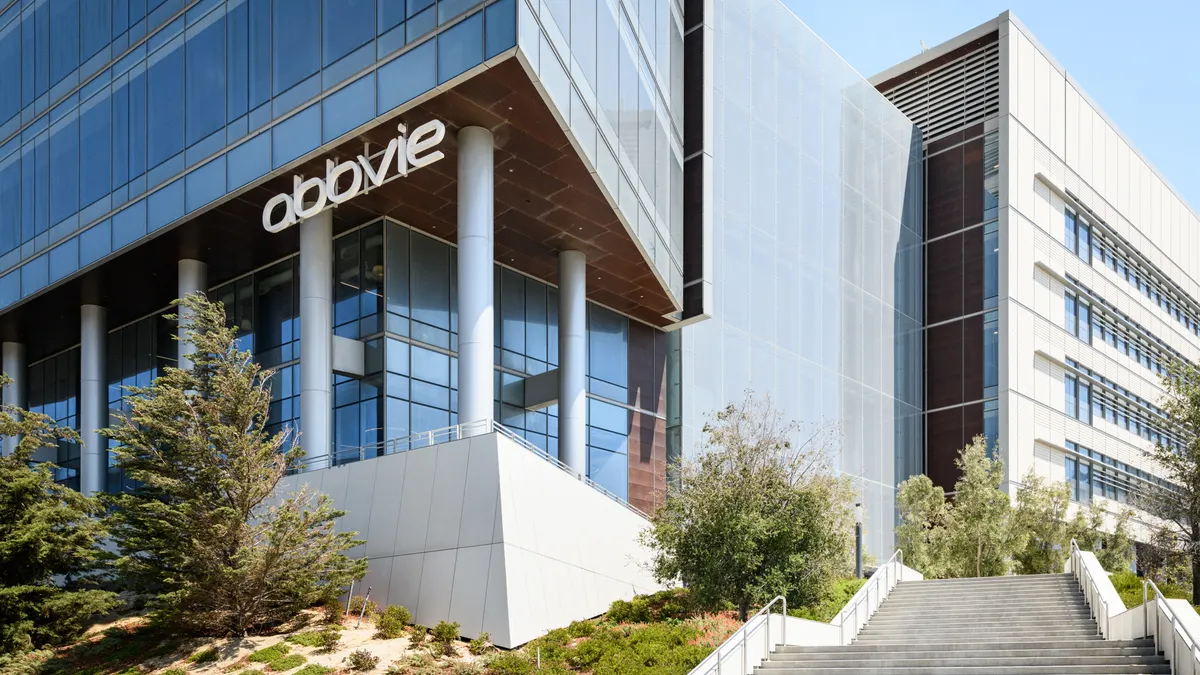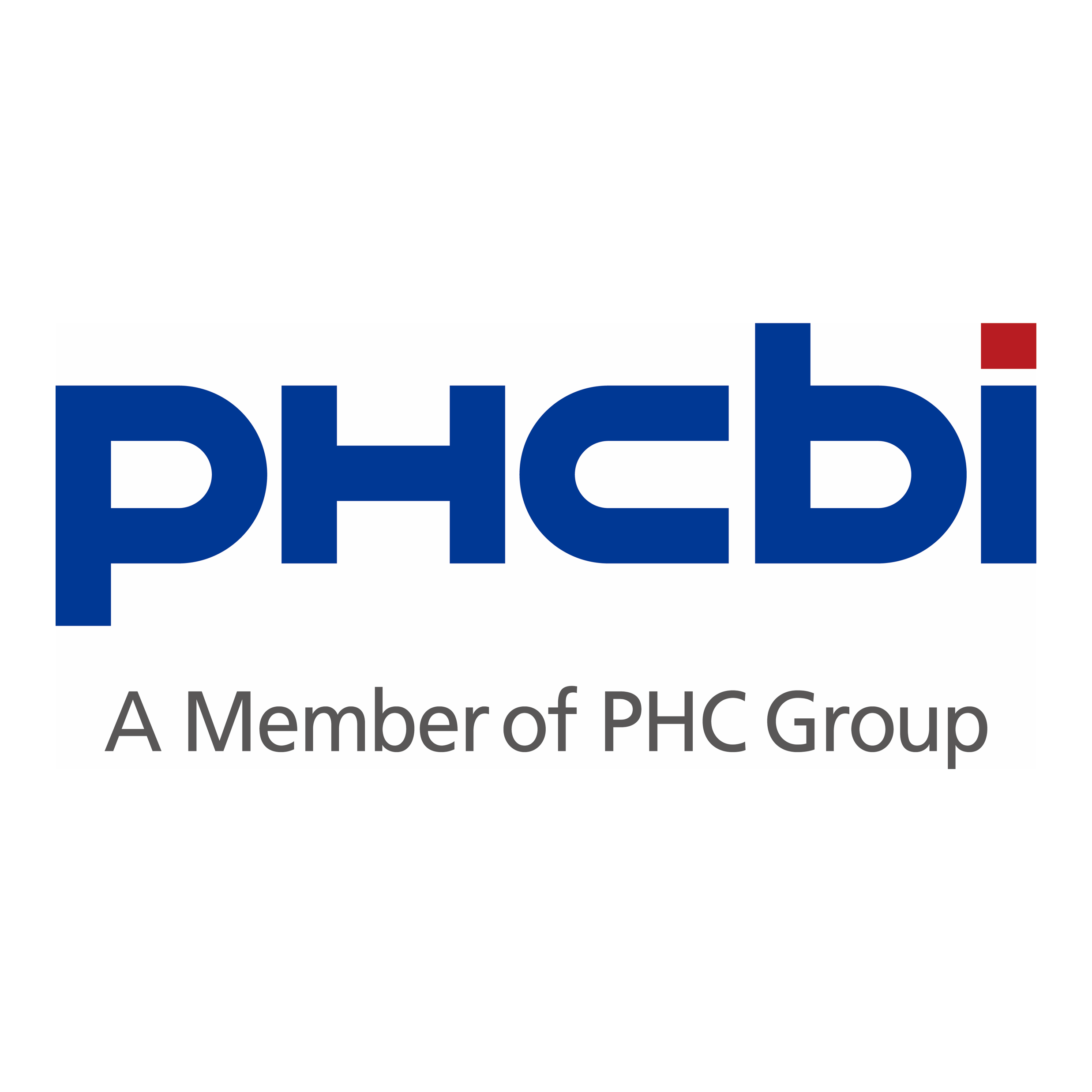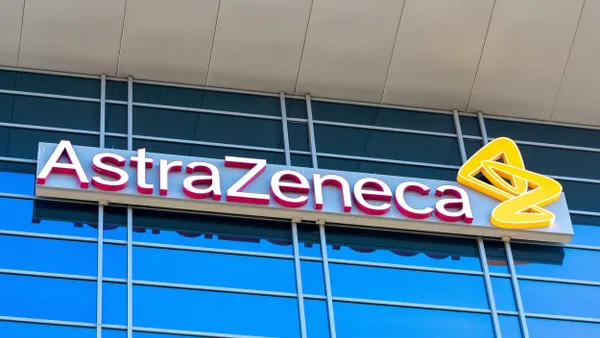AbbVie lost about $40 billion in market value Monday morning after an experimental drug the company had bet heavily on failed two important clinical trials.
The drug, called emraclidine, was developed by Pfizer spinout Cerevel Therapeutics, which AbbVie recently acquired for almost $9 billion. It’s one of a new class of brain-balancing medications researchers see as valuable tools for treating a variety of psychiatric conditions. With emraclidine, Cerevel chose schizophrenia as the first target, and over the past couple of years has been running a pair of studies to assess whether the drug can quickly alleviate symptoms of the disorder.
AbbVie has now disclosed the studies did not succeed. Three doses of the drug were tested, and neither performed significantly better than a placebo after six weeks of treatment. The trials together enrolled around 750 participants, and evaluated them with a well-known scale used to measure the different symptoms people with schizophrenia experience, from “positive” ones like excitement and hallucinations to “negative” ones like emotional withdrawal.
"While we are disappointed with the results, we are continuing to analyze the data to determine next steps," said Roopal Thakkar, AbbVie’s chief scientific officer, in the company’s statement.
The Illinois-based pharmaceutical giant said neuroscience remains one of its “key” focus areas. Just last month, AbbVie announced plans to spend $1.4 billion buying a startup with an experimental treatment for Alzheimer’s disease.
The company also noted how it gained an entire pipeline of drug programs from the Cerevel acquisition, with “multiple clinical-stage and preclinical candidates” that complement its existing portfolio of brain medicines. Net revenue from that portfolio, which includes Botox, the antipsychotic Vraylar and the migraine medication Ubrelvy, totaled almost $6.5 billion over the first nine months of this year.
One such Cerevel drug, a Parkinson’s treatment called tavapadon, defied analyst expectations by succeeding in a late-stage trial earlier this year.
Still, AbbVie investors may not see much of a silver lining. Company shares were down more than 12% Monday morning, representing one of the largest single-day dips involving a big pharma stock over the past year.
“This is disappointing and unexpected,” wrote Louise Chen, an analyst at the investment firm Cantor Fitzgerald, in a note to clients.
In an earlier, much smaller schizophrenia trial, researchers found two doses of emraclidine each beat a placebo at reducing scores on the same symptoms scale used in the Phase 2 studies.
Additionally, emraclidine works in a similar way to Cobenfy, an antipsychotic medication that succeeded in three medium- to large-sized clinical trials before receiving Food and Drug Administration approval in September. Less than three weeks after AbbVie announced its Cerevel acquisition, Bristol Myers Squibb agreed to buy Cobenfy’s developer, Karuna Therapeutics, for $14 billion.
Schizophrenia patients switch medications often, either because they carry side effects like weight gain or because they aren’t properly controlling the disease. Clinical testing of Cobenfy showed it doesn’t cause some of the more challenging side effects seen with other antipsychotics. That, plus Cobenfy’s ability to act quickly, has led both Bristol Myers and Wall Street analysts to expect billions of dollars in peak annual sales from the drug.
Shares of Bristol Myers were up almost 12% late Monday morning.
Olivia Brayer, an analyst at Cantor who covers the company, argues that emraclidine’s failure removes a “major overhang” for Cobenfy, as its “biggest competitive threat in schizophrenia is no longer.”
The Cerevel acquisition “just went up in flames,” Brayer wrote in a note to clients, adding that her team has been getting questions about how Bristol Myers stock could move based on the results of AbbVie’s two studies. But “an outright failure wasn't on anyone's bingo card.”















